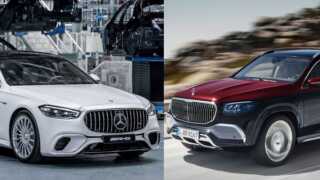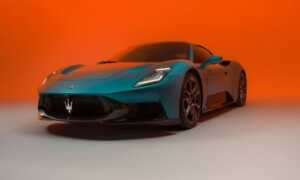Share via: At the core of Mercedes-Benz’s argument is not a rejection of decarbonisation, but of deadlines. Kallenius insisted that the industry’s transition must be technology neutral. …Read More At the core of Mercedes-Benz’s argument is not a rejection of decarbonisation, but of deadlines. Kallenius insisted that the industry’s transition must be technology-neutral. Get Launch Updates on Notify me The European Union’s landmark plan to phase out petrol and diesel cars by 2035 is facing fresh criticism, this time from Mercedes-Benz. The German automaker’s chief executive, Ola Kallenius , has cautioned that the policy risks throwing Europe’s auto industry into chaos if pursued without flexibility. In an interview with Handelsblatt, Kallenius said, “We need to do a reality check. Otherwise, we’ll be driving full speed into the wall.” The concern: fixed targets, fluid realityAt the core of Mercedes-Benz’s argument is not a rejection of decarbonisation, but of deadlines. Kallenius insisted that the industry’s transition must be technology neutral. A blanket ban, he warned, could disrupt economies, especially if consumer demand fails to align with regulatory timelines. “An absolute target at a fixed time with draconian penalties won’t help,” he said. Instead, the company advocates for a market-led transition, where consumer preference, supported by incentives, shapes the pace of EV adoption. Also Read : Mercedes G-Class hits 6 lakh production mark since 1979. Check details The China comparisonKallenius pointed to China as a counter-example. Unlike Europe, Beijing has not set an end-date for combustion engines. Instead, it has pushed EV adoption through cheap charging costs and tax breaks. At the same time, hybrids and combustion models remain in the mix. The result: EV sales are surging without the regulatory cliff-edge that Europe is heading toward. Mercedes-Benz is not alone in this stance. BMW’s CEO Oliver Zipse told Bloomberg last year that the 2035 target was “no longer realistic” and could trigger a “massive shrinking” of the industry. What the EU law saysThe EU mandate requires that from 2035, all new cars sold emit zero CO2. Existing cars are unaffected, and second-hand combustion vehicles can still be traded. Automakers may also continue producing combustion engines, but only if powered by carbon-neutral synthetic fuels, so-called e-fuels. The policy is central to Brussels’ climate plan, which targets carbon neutrality in the transport sector by 2050. Also Read : Mercedes Benz rethinks EQS strategy, will Combine EV and ICE S-Class models: Report Local measures already in playBeyond Brussels, cities are already moving to clamp down on emissions. London’s Ultra Low Emission Zone charges drivers of non-compliant vehicles £12.50 a day. Other cities, from Barcelona to Beijing, have rolled out low-emission zones to keep polluting trucks and cars out of urban cores. Between ambition and executionEurope’s 2035 target is pitched as a bold step toward net-zero. But as Mercedes-Benz and others warn, ambition without flexibility could backfire. Consumers are still price-sensitive, infrastructure is uneven, and technologies like e-fuels remain expensive. For Europe’s carmakers, once the envy of the world, the question is no longer whether to decarbonise, but how fast without breaking the industry in the process. Get insights into Upcoming Cars In India, Electric Vehicles, Upcoming Bikes in India and cutting-edge technology transforming the automotive landscape. First Published Date: 17 Aug 2025, 11:00 am IST
Source: hindustantimes.com






